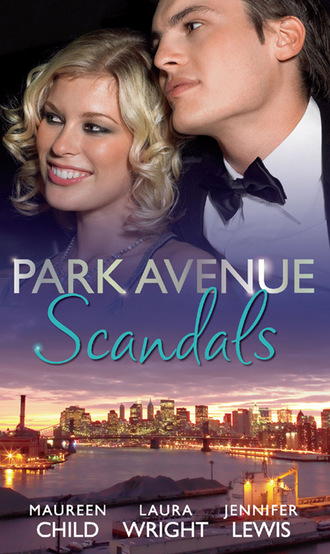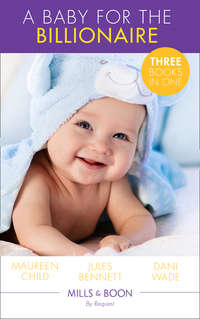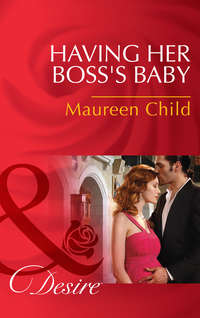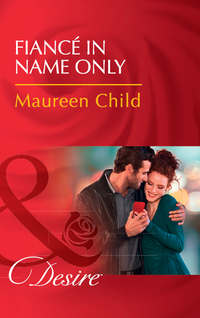
Полная версия
Park Avenue Scandals
I’ll want to know who to watch out for. Who to guard against.”
“Max—”
He kissed her and Julia’s mind simply shut down. There was no room for thinking when sensation was spilling through her like a river of molten lava. Every cell in her body was alive and awake and clamoring for more.
Max’s hands swept up and down her spine, molding her body to his, pulling her in so tightly to him that Julia thought wildly for a moment that her body was going to slide right into his. Her arms came up and linked behind his neck, holding his head to hers, his mouth to hers. He parted her lips with his tongue and she lost her breath on a ragged sigh of pleasure so deep, so soul searingly complete, she gave herself up to the wonder of it.
All of this happened even while a small, still-rational corner of her mind explored this new situation. Marrying Max? Was she asking for more trouble? Was she blindly walking into a situation that was only going to lead to misery? Was she setting herself up to be broken and hurt?
Did she have a choice?
Max broke the kiss. He didn’t let her go, just lifted his head and looked down at her. “Well? What’s it going to be, Julia? Do we get married?”
Her head still reeling, her body whimpering, Julia looked up into those grass-green eyes. She saw the future stretching out unknown in front of them and knew that he was the best choice for her and her child. She didn’t really want to marry a man who thought her capable of lying to him about something so personal, so important. But if she didn’t marry Max and the blackmailer made good on his/her threat, then she and her child would be the subject of vicious gossip for years. Besides, it wasn’t as if she was marrying a stranger. He was the father of her child.
This was her best … her only real choice. So she would marry Max. And somehow, she would find a way to convince him that the child she carried was his. With that thought firmly in mind, she heard herself say, “Yes, Max. We get married.”
“Excellent.”
Then he kissed her again and the deal was sealed.
“A prenup? You’re getting married? When did this happen?”
Max looked across the table at his attorney and friend, Alexander Harper. Tall, with dark hair and dark eyes, Alex looked dangerous, which Max appreciated in an attorney.
“It’s a sudden decision,” Max allowed, taking a sip of the fifty-year-old scotch in front of him.
“Damn sudden if you ask me,” Alex said, lifting a hand to signal the waitress for a scotch like his friend. He’d arrived a little late for their business lunch and had some catching up to do. “Aren’t you the guy who swore he’d never get married again after what happened with Camille?”
Frowning a little, Max nodded. “This is different.” In a few short sentences, he laid it all out for his friend, who shook his head and thanked their waitress for his drink when it arrived. Lifting the heavy crystal tumbler, he took a sip, set the glass down again and said, “That’s a hell of a thing, Max. And Julia Prentice is quite the catch.”
Max knew that. Hell, Julia’s bloodlines were better than Camille’s. The Prentice family was old money. They’d been around forever and guarded their name with the tenacity of a pen of pit bulls. Wryly, he admitted silently that he’d love to see the faces of Julia’s parents when she broke it to them that she’d be marrying him. A self-made billionaire, son of a truck driver and a housewife.
His gaze swept the interior of the small, upscale restaurant. Only a dozen or so tables filled the woodpaneled room, and those tables were covered in snowy-white linen. Waiters wearing black slacks and crisp white shirts moved through the room with silent efficiency. The darkly tinted windows looked out on Fifth Avenue, and for a moment, Max distracted himself by staring at the crowds of people streaming along the sidewalks.
“So,” Alex said, drawing his attention back to the conversation at hand, “you don’t believe her about the baby, but you’re marrying her, anyway.”
“That’s about the size of it. I need you to draw up a prenup and also a document stating I’m the father of her child.” The more he’d thought about this situation in the hour or so since Julia had left his office, the more Max liked the situation. He was getting a bed partner who lit his sheets on fire, and he was getting the child he so badly wanted. It was a win-win as far as he could see. And knowing going in that the woman he was about to marry was a beautiful liar gave him the advantage. Again. “I want it signed, notarized … hell, I want it bronzed, before the ceremony.”
“All doable,” Alex said, then pinned his friend with a hard look. “But tell me something. Why are you so fast to discount the possibility that you are the baby’s father?”
Frowning again, Max said, “You know why.”
“Yeah, Camille told you the tests came back saying you were infertile.”
Max scowled at him. Alex had never been a fan of Camille’s. Even knowing that his friend had been right didn’t change things. “I saw the damn test results.”
“You saw what Camille wanted you to see.”
They’d been over this before and Max was tired of the trip. So he cut his friend off at the pass. “Look, I don’t want to talk about ancient history. I just need you to take care of these details, all right?”
“Sure, Max,” Alex said with a shrug. “I’ll take care of it. How soon do you need it done?”
“The wedding’s in two weeks.”
Alex whistled, low and long. “I’ll have to hustle to get it all set up.”
“Well, my friend,” Max said with a self-satisfied smile, “that’s why you make the big bucks, isn’t it?
Now, let’s eat. I’m picking Julia up in an hour to go see the police.”
“At least that much makes sense to me,” Alex said, picking up his leather-bound menu to peruse it. “Who’re you going to be talking to? Do you have a name?”
“A Detective McGray,” Max said, sliding his gaze over the restaurant’s offerings. “He’s in charge of the investigation into the death of the woman who lived in Julia’s building. I figured, the blackmail’s in the building, too. Might as well see the man who’s already investigating what’s happening at 721.”
Detective Arnold McGray looked tired.
His salt-and-pepper hair stood on end and his eyes had dark shadows beneath them. A five-o’clock shadow stubbled his jaws, and his dark blue tie had been loosened at his undone collar.
“Let me see if I have this straight,” he said, glancing down at the notepad he’d been writing on since Julia had started talking. “You’re being blackmailed and you have no idea who might be behind this?”
“That’s right.” Julia stiffened, instinctively uncomfortable in the bustling detective area of the local NYPD precinct building.
Around her, overworked and underpaid police officers were hunkered down over desks littered with manila file folders, towering stacks of papers and ringing phones. The cacophony was deafening. A drunken homeless man was singing to himself, a hooker in a bright red dress was trying to proposition her way out of an arrest, and a bearded younger man rattled the handcuffs that kept him locked in his chair.
This was so far out of Julia’s everyday world, she didn’t know where to look.
“And you think this might have something to do with the death of Marie Endicott?” McGray’s voice was pitched just loud enough to carry over the noise.
“What?” Julia shook herself and frowned. “No, I mean, I don’t know. It’s possible, I suppose …” She glanced at Max, sitting beside her.
Even in this setting, his personal stamp of power was easy to read. He didn’t look intimidated or threatened by the surroundings. Clearly, he was a man completely at home and confident of himself wherever he was.
As if picking up on her uncertainty, Max took the thread of her conversation and finished it himself. “Detective McGray,” he said, “the truth is, my fiancée and I have no idea who might be behind this blackmail attempt. My feeling was that we should bring the matter to you, as it could very well be part of what’s happened at my fiancée’s building.”
Julia had to force herself not to jerk in reaction to the word fiancée. He’d used it twice, as if making a point either to her or the detective. Which? she wondered, and then asked herself if it mattered.
She’d already agreed to marry him. And though a part of her was worried about what would happen, another, more cowardly part was grateful for the reprieve Max had offered her. The fact that the child she carried actually was his, was, she thought, ironic.
“I appreciate you bringing the matter to my attention,” McGray said, slumping back in his tattered chair. “Frankly, I wouldn’t be surprised if there was a connection.”
“Really?” Julia asked.
“Seems unlikely that two such unrelated events would happen in the span of a couple of weeks—in a place that’s seen no trouble at all in more than ten years.”
“My thoughts exactly,” Max said, reaching out to give Julia’s cold hand a squeeze.
“Well, I’ve got all I need for the moment,” the detective said, standing up behind his desk. “I’ll look into this and if I find anything, I’ll be in touch.”
Max stood up, too, and held out one hand. When the older man shook it, Max thanked him. Then almost before she knew what was happening, Julia found herself being steered out of the police precinct and led outside.
“Do you really think the blackmailer has something to do with what happened to Marie Endicott?” Julia asked when they were alone.
He glanced over her head at the teeming streets, then led her down the steps to the sidewalk. Lifting one hand to hail a cab, Max glanced down at her. “My gut says yeah. They’re related.”
“Then that means …”
“We’re not sure what it means,” he cautioned, his green eyes going cold and hard. “But yes, your blackmailer could have been involved in that woman’s death.”
“Oh, God.” Julia hadn’t wanted to think of Marie committing suicide. But the thought of a murderer walking free through 721 Park Avenue was even more disquieting.
A chill swept over her, making her shiver despite the cloying heat and humidity pounding down on the city.
Five
Max stared up at the edifice of 721 Park Avenue, craning his neck to take in the entire fourteen-story brick facade. A prewar structure, 721 was a classic in the old style. The building settled into the corner of Park and Seventieth like an old woman in a comfortable chair.
The city itself had grown and changed over the years, but the old building remained the same, sitting in the heart of the most expensive slice of real estate in the United States. Politicians, celebrities, old money and new, all gravitated to the Upper East Side of New York. And this place was one of the crown jewels of the neighborhood.
All around him, the city pulsed with life and energy. People streamed past him on the sidewalk, and on the streets car horns blasted out a cacophony of sound.
Max ignored it all, though, as his gaze fixed on the roof and his thoughts turned to the woman who’d fallen to her death from that very roof. Then he thought about the blackmail attempt on Julia and asked himself, just what the hell was going on at 721? He agreed with the police detective they’d spoken to the day before. It seemed highly unlikely that two such-out-of-the-normal events could happen within a couple of weeks of each other and not be related somehow.
Lowering his gaze to the glass door that opened into the quietly elegant lobby of the building, Max spied the doorman wandering over to his desk. Smiling to himself, Max stepped up, pulled open the front door and stepped into the cool quiet of the lobby. Vastly different from his own building’s entry, 721 reeked of old-world elegance and a time long past.
Instantly the doorman’s gaze snapped up to meet Max’s. “Good afternoon,” he said. “May I help you?”
Max walked up to the impressive mahogany desk behind which the much smaller man stood. Taking a quick look around the lobby area, Max spotted the mailboxes for the tenants and smiled to himself. Just as he’d thought. The doorman would have had a good view of whoever might have slipped a blackmail letter into Julia’s mail slot.
Rather than answering the man’s question, Max gave him a tight smile and said, “You’re Henry, right?”
The doorman looked surprised. “Yes, sir. Henry Brown.”
“My fiancée lives in this building,” Max said, and realized that it was getting easier to say the word fiancée. “Ms. Prentice.”
There was a flicker of surprise in Henry’s dark brown eyes, which disappeared a moment later. “Are you here to see her, then? She’s not at home at the moment, but I’d be happy to deliver a message for you.”
Trying to get rid of him? Max wondered. “No,” he said, “actually, I came to talk to you.”
“Me?”
Max had made it a point over the years to learn how to read people. It came in handy in negotiations and was invaluable when meeting new clients or prospective business partners. And every instinct Max had told him that Henry was nervous. It didn’t show clearly, of course, and if he hadn’t been looking for the signals, he might have missed them himself.
But Henry’s gaze was furtive, darting around the lobby as if looking for help that wasn’t going to come. His right hand was fisted on his desk and the fingers of his left hand tapped restlessly against a pad of paper with 721 in elegant script across the top.
Interesting, Max thought and smiled inwardly. “Yes, Henry. I want you to think back on the last few days.”
“About what?”
“Have you seen anyone in here who didn’t belong?” Max leaned one arm on the desktop. “Anyone who might have dropped an envelope into one of the mailboxes?”
Henry blinked as if he was stepping out of the shadows and into the light. His mouth opened and closed a couple of times, then he swallowed hard and shook his head. “No, sir, I haven’t. And nothing like that would happen without me seeing it. I’m on duty right here. No one would get in who didn’t belong.”
“I did,” Max pointed out.
Henry licked his upper lip, blew out a breath and said, “What I meant was, no one could stay inside who didn’t talk to me first. And no one but the mailman and the residents go near the mailboxes.”
“You’re sure about that?”
Henry lifted his narrow chin, met Max’s gaze with the direct stare of an honest man and said, “Absolutely.”
Max was sure about something, too.
Henry was lying.
Max couldn’t prove it, but he knew it down to his bones. And that made him wonder what exactly was going on at 721. The old place looked quiet, dignified. But there were undercurrents here and Max didn’t like it. He didn’t want to think about Julia staying here. One woman was dead and Julia herself was being blackmailed.
Something was very wrong in this building.
“You’re pregnant?”
Julia winced as her mother’s voice hit a particularly high note. She’d known this was going to be an ugly meeting. She had to face her parents not only with the news of her pregnancy, but her upcoming marriage, as well.
She sighed a little as her mother stood up from her silk-brocade chair and stared down at Julia as though she were a particularly appalling bug. Just imagine, she thought, what this scene would have been like if you hadn’t been able to tell them you’re getting married.
The sting of their only daughter being an unwed mother was something her parents might never have recovered from. All her life, Julia had been a disappointment. She knew that. Her parents had made sure of it. And all of her life, a part of Julia had tried to make them proud. To make them love her. Despite her efforts, nothing had changed.
She looked up at her mother and felt … nothing. No connection. No bond. No threads of affection or familial loyalty. Just … nothing. As sad as that made her, Julia realized that accepting this was the first step in finding her own kind of peace. The first step in building her own family. Her own world, separate and apart from the people who’d made her.
“Yes,” Julia said, smiling into her mother’s disapproving gaze, “I am. And my baby’s father and I will be getting married in just a couple of weeks.”
“That’s something, I suppose,” her father muttered from the chair where he sat glaring at her. “As long as you’re married quickly, no one will have to know the reason.”
Julia glanced at him and noticed that his bushy gray eyebrows were drawn together in a too-familiar frown of disgust. She couldn’t remember a single time in her life when her father had held her, hugged her, told her that she was pretty or that he loved her. How strange it was to sit here in this place and realize the sad truth of her life.
She didn’t have a family. She had biological parents. That was all.
And because she knew that they would never approve of her or give her the kind of love she’d once longed for, Julia was free. Free to speak her mind. To tell them what she’d feared telling them only days before.
Straightening in her chair, she clasped her fingers together tightly in her lap and said, “People will know I’m going to have a baby, Father.”
“Eventually,” he conceded with a shake of his head.
“Donald, you’re missing the point here,” Margaret Prentice snapped. “This will make us grandparents. For heaven’s sake, I don’t want people thinking I’m old enough to be a grandmother. This is a disaster.”
“Thank you,” Julia muttered.
“You will not speak to us in such a fashion, Julia,” her mother said as her cold blue gaze fixed on her daughter. “At the very least, you owe us civility and respect.”
“Respect is a two-way street, Mother.”
Margaret laughed shortly. “Respect? You expect us to respect you for being stupid enough to get pregnant? You ask too much.”
“Having a baby isn’t stupid,” Julia argued.
“You’re not even married,” her father said.
“I will be soon,” she responded, feeling a fire begin to build inside her. For years, when there were “discussions” like this one, she’d kept her mouth shut, done what was expected of her. But not anymore. She owed her child more than that. She owed herself more than that.
“How could you do this to me?” Margaret’s voice shrieked a little.
“I didn’t do anything to you, Mother …”
“None of my friends are grandmothers,” her mother said hotly. “How will this look to people? How can I face my friends?” She crossed her too-thin arms over her narrow chest, but not tightly enough to wrinkle the cream-colored silk blouse she wore tucked into the waistband of linen pants the color of wheat. Margaret’s elegantly styled hair was short and dyed honey-blond every four weeks. Her manicure was perfect, her makeup expertly applied, and her unlined face was a billboard for the best cosmetic surgeons in the city.
“Mother—”
“Don’t speak to me.”
“If we keep the ceremony quiet,” Donald Prentice mused more to himself than anyone else, “it’s possible—”
“What?” Margaret turned on her husband like a cobra. “That no one will notice when Julia’s body begins to swell? People will notice, I assure you. And my friends will never let me forget that I’m a grandmother, for pity’s sake.”
It was as if Julia wasn’t even present. They talked around her, over her, about her, as if she wasn’t their daughter at all, but some annoying distant relative who’d made a claim on them they didn’t care to acknowledge.
This she was used to. She’d grown accustomed to being nothing more than an annoyance to the people who should have loved her the most. Her succession of nannies had given her the only affection she’d known in her childhood, and as she grew older, Julia had realized that her parents had never wanted children in the first place.
At fifteen, she’d actually heard her mother telling a friend one day about “accidentally” getting pregnant and what a horror it had been. Julia glanced around the living room of the home where she’d grown up and realized that she’d never once felt comfortable there. Never once had she felt as though she belonged.
And that still held true. The walls were a glaring white with only a few abstract paintings lending garish splotches of color to the cold room. The floors were white tile and the chairs and couches, upholstered in subtle, differing shades of beige, were designed more for appearance than comfort. Even the smell of the house was sterile, as if the air in the place had long since died and was only being recycled by the people who continued to breathe it.
Rubbing at her temples, Margaret glared at Julia. “Who, may I inquire, is the father of this unfortunate child?”
Julia squirmed in her chair and cupped one hand over her still-flat abdomen as if she could prevent her baby from hearing its grandparents’ dismissal of its very existence. “His name is Max. Max Rolland.”
Margaret frowned, though her too-tight forehead prevented it from showing. “Rolland. Hmm. No, I don’t believe I know any Rollands. Donald?”
Julia waited, knowing that this news would completely wipe away her parents’ fury at hearing about the baby. Discovering that their only child was about to marry a man with no pedigree would put everything else they’d heard into perspective for them.
Strangely enough, Julia was almost looking forward to their reaction.
“Max Rolland …” Her father repeated the name thoughtfully.
“Who are his people?” Margaret demanded.
“His parents have passed away,” Julia told her.
“I didn’t ask where they were,” Margaret reminded her, “I said who are they?”
“I know the name Rolland,” her father said from his chair. “I just can’t place it.”
“Max is from upstate,” Julia told her mother. Then, smiling, she took a breath and added, “His father was, I believe, a truck driver and his mother was a housewife.”
Margaret slapped one hand to her chest and staggered backward as if someone had shoved a sword through her body.
“Rolland!” Donald Prentice shouted the name and pounded one fist against the arm of his chair. “That’s how I know the name. That upstart running roughshod over Wall Street. He’s made something of a name for himself, but—”
“A truck driver?” Margaret moaned softly, dropped back into her chair and lifted one hand to cover her eyes. “Oh, dear God, how did this happen?”
Julia paid no attention to the drama. “Max is very successful,” she said. “He’s a … good man.” That might have been a bit of a stretch, she told herself, but at the same time, she realized that only a good man would have proposed to help her out. Whether he saw it that way or not, if he’d been a different sort of man, he’d have left her to solve her own problem or drown in her own misery.
“A housewife?” Margaret whispered the word as if afraid someone might hear her.
“People say he’s cold and ruthless,” Donald was saying, though his wife wasn’t listening and Julia didn’t want to hear him. “Could be quite a force in the city if he had a family name behind him.”
“He’s doing just fine without a ‘name,’“ Julia argued.
“No doubt,” Donald said with a frown. “But there are limits to what a man like him can accomplish.”
“Because his blood isn’t blue?” Julia stood up and looked at her parents each in turn. “That’s ridiculous. Max Rolland is a good, hardworking man who made his own fortune rather than inherited it.”
“Exactly,” Donald said with a slow shake of his head.
Sunlight streamed through the windows, glancing off the white walls and floors until Julia’s eyes stung with the cold, hard brilliance of it all. Why had she been so concerned with telling her parents about her baby? Why had she been so terrified that she might lose this one slender thread of family?
The truth was, she’d never had a family to lose. She’d always been alone.
Until now, anyway.
Now she had her baby.
And she had Max.








